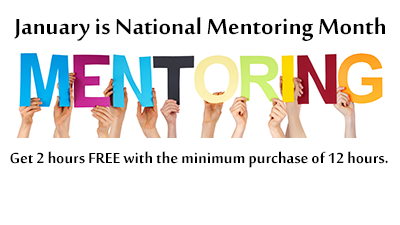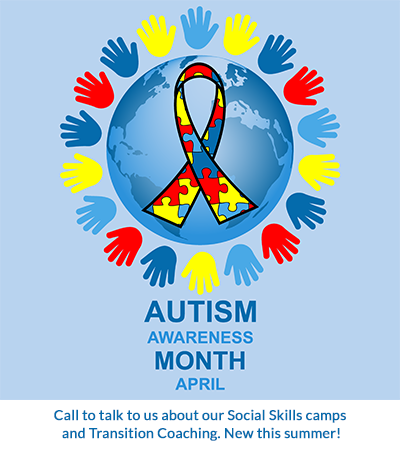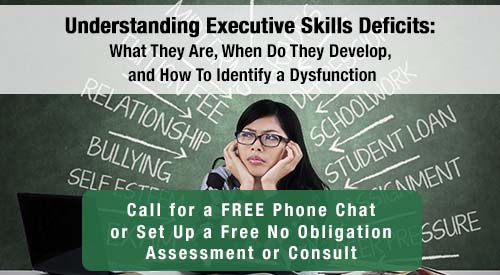Early Intervention: It’s Never to Late
 Executive Skills Master Coach and mother, Jamie Barber, shares her personal insight and information as to why early diagnosis and early intervention can be a productive course of action for children who have impairments that may cause learning difficulties.
Executive Skills Master Coach and mother, Jamie Barber, shares her personal insight and information as to why early diagnosis and early intervention can be a productive course of action for children who have impairments that may cause learning difficulties.
My son has what the neurologist calls a “complex neurological profile.” He has a combination of ADHD (inattentive type), and autism spectrum disorder (with some atypical presentations), which both make him struggle with sensory processing and executive function.
His multitude of symptoms all combine in a boy that teachers call “delightful, but highly distractible,” and friends seem to find ¾ parts fun due to his imaginative games and easygoing attitude and ¼ parts frustrating due to his penchant for non-sequitur conversation starters and tendency to wander off mid-game or even mid-sentence.
Before he had any formal diagnosis, I thought of him as “lovable and quirky” on my good days and “unpredictable and clingy” on my bad ones. I knew he was different from the majority of the kids in our playgroups, but it was unclear to me if this was a difference I should simply embrace and love, or a condition I needed help with. I agonized daily as I watched him remain developmentally behind other kids, and yet I also judged myself for noticing. If I loved his individuality so much, why did I keep noticing his deficits?
In their book The Complete Guide to ADHD: Nature, Diagnosis, and Treatment Katerina Maniadaki and Efhymios Kakouros write, “Respect for individual differences does not mean eliminating differences and ignoring difficulties…Respect for differences means acknowledging them, exploiting strengths, and addressing weaknesses” (21).
Eventually I came to feel that in order to respect and support my son’s individuality, I needed more information. I advocated for him to be evaluated by his elementary school’s psychologist and special educator, and I also sought private evaluation with a neuropsychologist.
While his dual diagnosis did come as a surprise, what I mostly felt was relief. With a diagnosis, I could start to see patterns to his behaviors, and to figure out what supports would turn home and school into spaces that were more conducive to his learning and emotional needs.
The purpose of this document is to give parents insight and information as to why early diagnosis and early intervention can be a productive course of action for children who have impairments that may cause learning difficulties. These impairments may be in the form of diagnosable conditions such as autism, ADHD, dyslexia or auditory processing disorder. On the other hand, the impairments may just manifest as a generalized “struggle” with certain tasks, social situations, academic subjects or executive function.
Trust Your Instincts
No parent likes the thought of criticizing or looking down on a child’s performance. This is one reason why it can be hard to admit when we see a difference in our child. Yet concern about a child’s development and performance is not a criticism. Noting your child’s learning differences can be a way of keeping your child’s health, happiness and future in mind. No one knows your child better than you do. If you have a concern that your child is not performing at the rate of same-age peers, you can trust that instinct. In the younger years, learning impairments can present in the form of low problem-solving skills, lack of flexibility, the inability to stay focused at the rate of peers, or disinterest in games or other children. In the elementary years, impairments might show themselves in the form of high frustration levels at school, poor academic performance, difficulty organizing and keeping track of materials, or an inability to participate in classroom activities.
Why Pursue Early Detection?
Children with a cognitive, social or neurological impairment can struggle with tasks and situations that their peers accomplish easily. This can lead to children feeling confused at their own inabilities. It can also lead them to be coded as lazy, clumsy or unmotivated by educators and even parents. Early detection for a learning difference can help parents and educators understand why a child is performing differently than his peers.
Researchers have shown that children with autism spectrum disorder who received intensive intervention by age six show improved symptoms and behaviors when compared two years later to peers who had not received early intervention (Estes et. al.). Researchers found similar results in their study on children with reading disabilities. Children who received early intervention continued to outperform the control group years after the intervention was performed (Lovett et. al.).
Most of the research and the experiences of educators all points to the high benefits of early intervention. As Maniadaki and Kakorous state, “…we feel grateful that science has progressed to such an extent that we can now recognize and diagnose ADHD and intervene early enough in order to prevent effects on functioning and quality of life of people with the disorder” (21). While these researchers look exclusively at children with ADHD, I would claim that their idea holds true for any learning disability. Early diagnosis and intervention can improve future functioning and quality of life.
A Diagnosis Can Be Helpful
Some parents may worry that seeking out special supports in school or getting a diagnosis for their child can lead to a stigma or suggest that they don’t appreciate their child’s individuality. On the contrary, I would now argue that a diagnosis allows parents to better understand the unique nature of their child. A diagnosis can help parents and educators more easily understand the root cause of some behaviors or struggles and therefore identify the type of supports a child might need. This can lead to better social and academic success. Maniadaki and Kakourous argue that diagnosis works as a “framework for evaluating evidence, applying it, and communicating to people who seek help for themselves and their children” (21). Also, it’s important to note that understanding and inclusion of children with learning differences has come a long way. Pursuing a diagnosis can allow your child to benefit from the full range of supports in the academic setting and help you as a parent decide what types of outside services you may want to pursue.
Advocate Early & Often
If you suspect your child may have a learning difficulty, began advocating for supports sooner rather than later. This might simply come in the form of meeting with your child’s preschool or elementary school teacher and brainstorming ways your child can be supported in the classroom. If learning difficulties are minimal, this step might be enough.
Advocating might also take the form of psychological testing either through your school or with outside experts like a neuropsychologist or learning expert. If your child is diagnosed with a long-term impairment, you may then take steps to request an Individual Education Plan (IEP) that will ensure the school works to give your child the necessary supports.
While many educators and schools have the best intentions, the reality is that they are often overtasked. This means getting supports can take time. The sooner you begin the work toward diagnosis and a request for supports, the sooner your child can be in a learning environment that matches their needs. Once the supports are in place, you may still find that advancing your child’s needs is an ongoing process. I’ve worked with a number of families who’ve had to continually advocate to ensure the terms of their child’s IEP are followed.
It’s Never Too Late to Advocate
Some learning issues may become exacerbated as your child moves up grade levels. Children with executive function deficits can sometimes manage just fine in the elementary years, but struggle with the higher independent and organizational skills required in middle and high school. As these students age, they may find that they cannot manage the physical organization needed for their school materials, or the cognitive organization needed for higher level writing assignments. Students on the autism spectrum can often have high reading abilities, but struggle with making inferences, a skill that gets more and more important as they move into late high school. All of this points to the fact that it’s not too late to advocate for your student, even as they move into middle and high school.
Kristin Stanberry explains that, “An IEP can help teens learn to understand and manage learning and thinking differences while still in high school.” This can mean that interventions can help your teen gains vital skills that will then transfer to college. Even if your child doesn’t need an IEP, finding a way to get them a tutor, an academic coach, or after school study sessions can help them better understand material and better understand themselves as learners.
As an academic coach, I’ve worked with young adults who made it through high school with minimal academic support, but then couldn’t quite manage the new set of skills required in college. Support, even sometimes just in the short term, can help older students learn to navigate the new systems of living away from home and managing more difficult classes.
For more information about the services New England Tutors offers, including our Executive Skills Programs, call 844-NETUTOR Ext. 700 or email allison@netutors.com.
Works Cited
Estes, Annette et. al. “Long Term Outcomes of Early Intervention in 6-year old Children with Autism Spectrum Disorder. Journal of American Academy of Child and Adolescent Psychiatry. Vol 54 No 7. Jul 2015 pp. 580-587. Science Direct. https://doi.org/10.1016/j.jaac.2015.04.005
Katerina Maniadaki, and Efhymios Kakouros. The Complete Guide to ADHD: Nature, Diagnosis, and Treatment. Taylor and Francis, 2017, doi:10.4354/9781315316048
Lovett, Maureen W. et al. “Early Intervention for Children at Risk for Reading Disabilities: The Impact of Grade at Intervention and Individual Differences on Intervention Outcomes.” Journal of Educational Psychology, vol. 109 no. 7, Oct. 2017, pp. 889-914. EBSCOhost, PsycARTICLES doi:10.1037/edu0000181
Stanberry, Kristen, “Getting an IEP for your Teen.” Understood, https://www.understood.org/en/school-learning/special-services/ieps/getting-an-iep-for-your-teen











